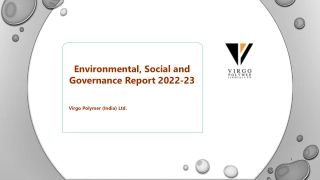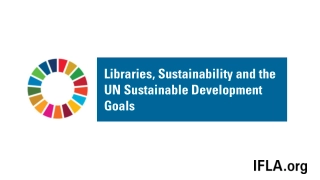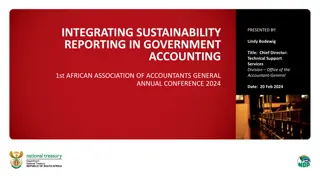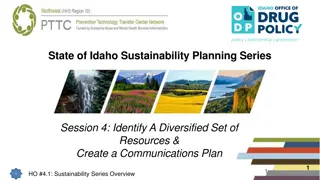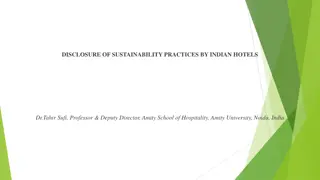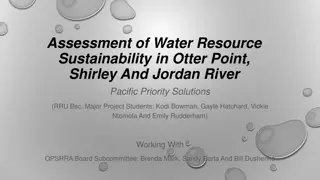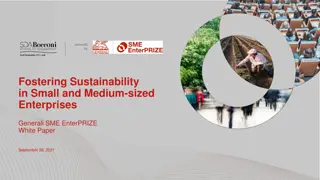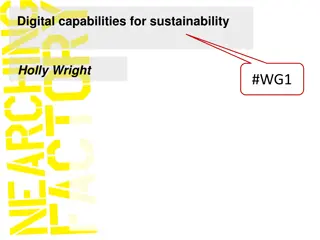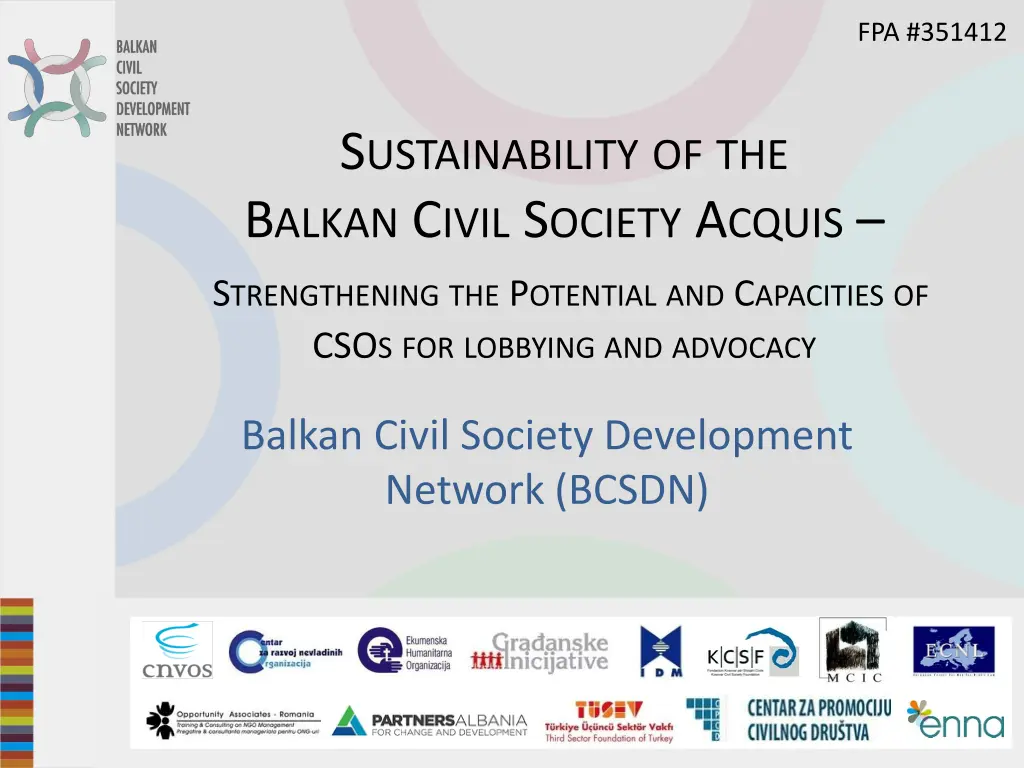
Strengthening Balkan Civil Society: Sustainability and Advocacy
Explore the sustainability efforts of the Balkan Civil Society Development Network in strengthening CSOs for lobbying and advocacy. Learn about the outcomes, sustainability strategies, and risk mitigation plans implemented by BCSDN.
Download Presentation

Please find below an Image/Link to download the presentation.
The content on the website is provided AS IS for your information and personal use only. It may not be sold, licensed, or shared on other websites without obtaining consent from the author. If you encounter any issues during the download, it is possible that the publisher has removed the file from their server.
You are allowed to download the files provided on this website for personal or commercial use, subject to the condition that they are used lawfully. All files are the property of their respective owners.
The content on the website is provided AS IS for your information and personal use only. It may not be sold, licensed, or shared on other websites without obtaining consent from the author.
E N D
Presentation Transcript
FPA #351412 SUSTAINABILITY OF THE BALKAN CIVIL SOCIETY ACQUIS STRENGTHENING THE POTENTIAL AND CAPACITIES OF CSOS FOR LOBBYING AND ADVOCACY Balkan Civil Society Development Network (BCSDN)
EARLY FPA OUTCOMES Mechanisms for monitoring environment for CSDev applied (Monitoring Matrix reports) Successful advocacy initiatives on local level Monitoring and advocacy initiatives integrated in EU Progress Reports First baseline study for the Economic Value of CSOs Strategies for action developed by local CSOs through the Balkan Public Policy Fund Donors on national and regional level coordinate and collaborate with CSOs A regional network strengthened and able to present strategic programs
SUSTAINABILITY OF THE OUTCOMES Financial Sustainability Institutional Sustainability Policy-level Sustainability Several small independent sources of funding Monitoring Matrix (MM) activities designed to continue beyond 2017 Closely related with the continued support from EU Additional funds have been identified, raised and used during the years of the FPA implementation Highly developed network structure Products and outcomes used by the EC and other stakeholders Project involvement of the members guarantees ownership and strengthens sustainability Supporting national organizations in each country through sub- grant scheme BCSDN expertise used by Governmental offices in the region Cooperation for the development of a Gov2Gov regional web platform and a self-assessment tool Policy dialogue on national level leads to mutual recognition, trust and cooperation MM feeding into the EU CS Guidelines EE expertise shared in other regions (e.g. BlackSea) Pre-conditions for achieving and maintaining sustainability
RISKS AND MITIGATION STRATEGY Local partners have possibilities for different sources of funding or actions Joint strategic work by the network in the following year Risk 1: Financial Sustainability No joint-action funding Risk 2: Policy sustainability Lack of political will or capacities Contacts and cooperation have been established with the relevant EC/public authorities Alternative list of potential participants Risk 3: Development of parallel monitoring system EU CS Guidelines The monitoring reports should be further developed and the EU CS Guidelines targets brought to the same direction in order to avoid duplication of efforts Viable partnership constructed between the members in the network Long years of work dedicated for peace and stability in the region Risk 3: Unstable political and social environment
OTHER POSSIBLE SOURCES OF FUNDING At present, no concrete source of funding for a joint/concerted monitoring and advocacy action has been identified except for the internal sources of the members organizations used for individual components and project outputs EU funding on national level for EE monitoring is important for the credibility of the project, for attraction of other support, and for the responsiveness from the authorities and decision-makers

